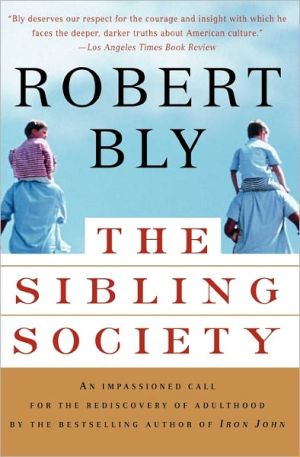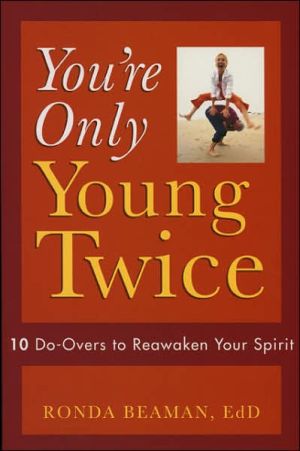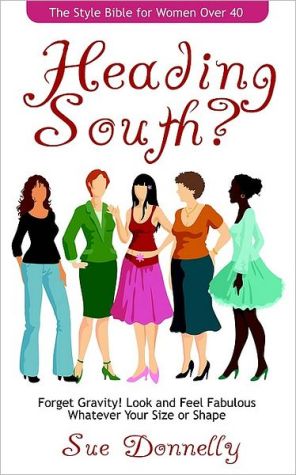The Sibling Society
Where have all the grownups gone? In answering that question with the same freewheeling erudition and intuitive brilliance that made Iron John a national bestseller, poet, storyteller and translator Robert Bly tells us that we live in a "sibling society, " in which adults have regressed into adolescence and adolescents refuse to grow up.
Search in google:
The author of Iron John expands his mythic perspective to examine American culture at large, and finds us to be a nation of squabbling children. Walter Goodman Mr. Bly is an accomplished storyteller, and his affection for the tales of many peoples over many centuries can be catching. But when it comes to the contemporary condition, his propheteering arias seem as out of control as the nafs....No, don't throw his book out the window. At least read the fairy tales. ''The Sibling Society'' is by turns engaging and exasperating, suggestive and tendentious, a mix of imagination, scholarship and remarkable silliness. Although he announces, in his take-no-prisoners way, ''Television is the thalidomide of the 1990's,'' I wouldn't be surprised if Mr. Bly showed up on PBS again soon. -- New York Times
\ Walter GoodmanMr. Bly is an accomplished storyteller, and his affection for the tales of many peoples over many centuries can be catching. But when it comes to the contemporary condition, his propheteering arias seem as out of control as the nafs....No, don't throw his book out the window. At least read the fairy tales. ''The Sibling Society'' is by turns engaging and exasperating, suggestive and tendentious, a mix of imagination, scholarship and remarkable silliness. Although he announces, in his take-no-prisoners way, ''Television is the thalidomide of the 1990's,'' I wouldn't be surprised if Mr. Bly showed up on PBS again soon. -- New York Times\ \ \ \ \ Kirkus ReviewsFollowing Iron John's (1990) mythopoetic men's-movement guide, Bly's new jeremiad turns to broader issues of children and parents, excoriating the modern world as an adolescent culture lacking parental supervision.\ Bly's "sibling society," formed by "junk culture . . . early and shallow sexuality, destruction of courtesy . . . economic uncertainty," sacrifices mythic symbols for literal information, with children the first victims of this denatured environment. "Adults," Bly writes, "regress toward adolescence; and adolescents—seeing that—have no desire to become adults." This tattered society is, he suggests, the puerile heir to the overthrown, emotionally bankrupt patriarchy. Bly, playing at punditry, predicts a catastrophic downward shift in values unless we identify the proper way to rear children and unless we "half- adults" become truly mature. He salts his call to action with citations from New York Times articles and sundry statistics on education, crime, and the economy. In fact, The Sibling Society often sounds more like Bob Dole, Anna Quindlen, or even Ross Perot than Iron John. As in that earlier work Bly turns to myths and poetry both to illustrate our predicament (an elaborate reading of Jack and the Beanstalk focusing on the Giant's ungoverned appetite) and to suggest an alternative model for father-son relations (the Hindu myth of Ganesha's creation). Bly also liberally borrows from feminists, such as Jean Baker Miller and Mary Pipher, to fashion his vision of a healthy environment for maturation and intimacy, for fathers and mothers, daughters and sons alike. There are stops along the way to settle scores with radical feminists and the cowboy cult of inarticulately stoic masculinity, among others. Bly, having identified what children need—"Stability . . . advice, good psychic food, unpolluted stories," as well as clear rites of passage and access to the great outdoors—offers some specifics on how we should go about providing these necessities.\ Urgent, impassioned, with (potentially) wide appeal, but Bly's myth-patterns jar with his newly adopted news-magazine style of statistics and commentary.\ \ \







